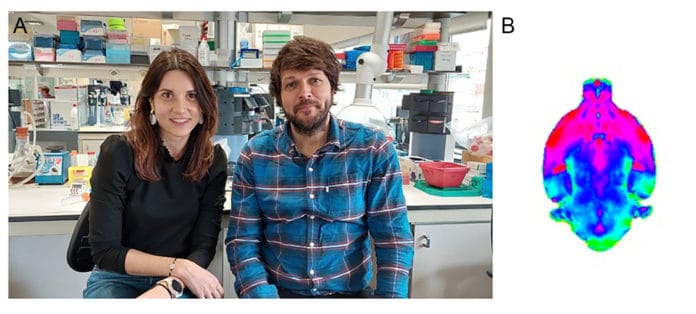Food cravings are very common, especially during pregnancy. It contributes to the maintenance and development of gestational overweight or obesity. However, the neurobiology underlying the distinct ingestive behaviors that result from craving specific foods remains unknown.
A new study by the University of Barcelona has shown that the brain of female mice during pregnancy changes the functional connections of the brain reward circuits and taste and sensorimotor centers.
Mice, similarly to humans, experience gestational food craving-like episodes. Like humans, they are sensitive to sweet food, and they develop binge-eating behaviors toward high-calorie foods.
March Claret, a lecturer at the Faculty of Medicine and Health Sciences of the University of Barcelona and head of the IDIBAPS Neuronal Control of Metabolism Group, said, “The alteration of these structures made us explore the mesolimbic pathway, one of the signal transmission pathways of dopaminergic neurons. Dopamine is a key neurotransmitter in motivational behaviors.”
Scientists observed the levels of dopamine and the activity of its receptor, D2R- to increase in the nucleus accumbens.
Haddad-Tóvolli said, “This finding suggests that the pregnancy induces a full reorganization of the mesolimbic neural circuits through the D2R neurons. These neuronal cells and their alteration would be responsible for the cravings, since food anxiety, typical during pregnancy, disappeared after blocking their activity.”
Constant cravings have consequences for the offspring. They significantly impact the metabolism and development of neural circuits that regulate food intake, which leads to weight gain, anxiety, and eating disorders.
Claret said, “These results are shocking since many of the studies are focused on analyzing how the mother’s permanent habits — such as obesity, malnutrition, or chronic stress — affect the baby’s health. However, this study indicates that short but recurrent behaviors, such as cravings, are enough to increase the psychological and metabolic vulnerability of the offspring.”
Journal Reference:
- Haddad-Tóvolli, R.; Ramírez, S. et al. Food craving-like episodes during pregnancy are mediated by accumbal dopaminergic circuits. Nature Metabolism, 2022 DOI: 10.1038/s42255-022-00557-1
